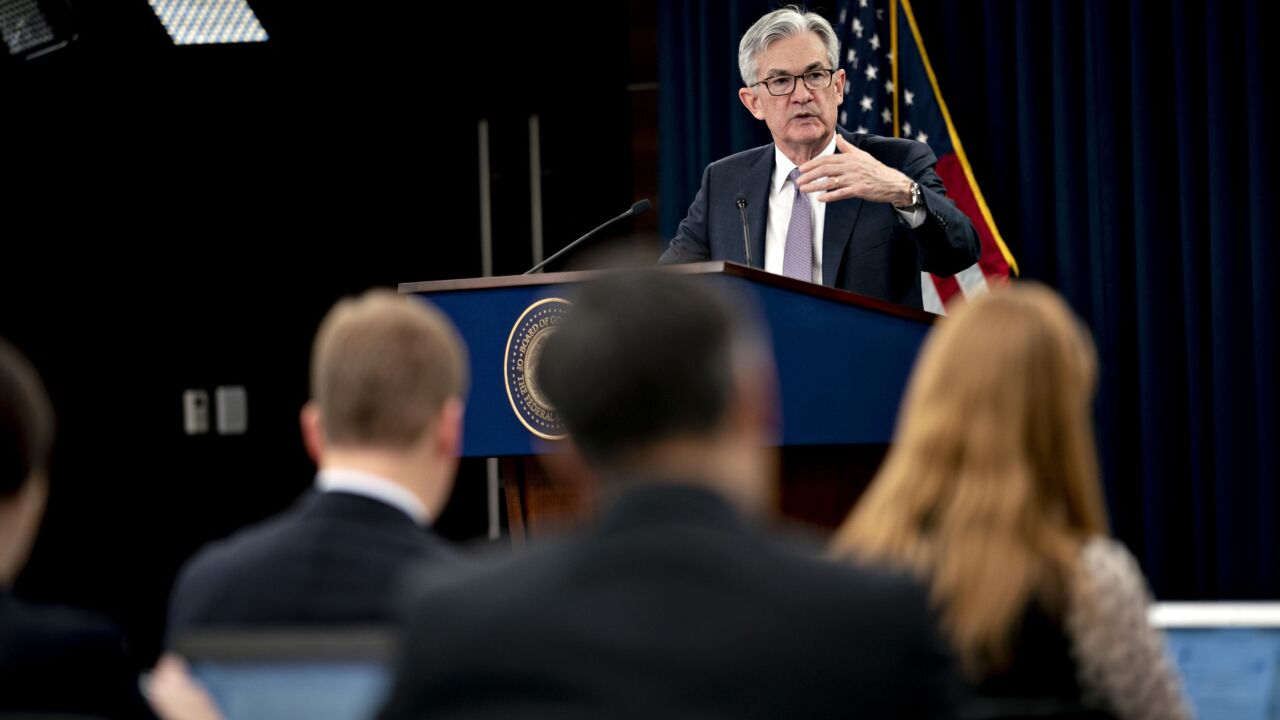A trio of housing trade groups is suggesting Fannie Mae and Freddie Mac once again be able to purchase mortgage-backed securities, at least on a temporary basis,
For much of at least the past 18 months, the difference between the 10-year Treasury yield and the average on the 30-year conforming mortgage was between 250 basis points and 300 basis points. Normally, the difference is between 150 basis points and 200 basis points.
The 10-year yield closed on Oct. 12 at 4.71%, up 11 basis points on the day. At a 170 basis point spread, the 30-year fixed rate mortgage should have averaged around 6.4%.
Data from Optimal Blue put the 30-year conforming FRM at an average of approximately 7.54%, making the spread 283 basis points. That was also 5 basis points higher than the previous close.
The proposal was made in a letter to Treasury Secretary Janet Yellen and Lael Brainard, director of the National Economic Council and assistant to Pres. Biden for economic policy. If enacted it would reduce mortgage rates by 100 basis points to 150 basis points, the proponents — the Community Home Lenders of America, the Independent Community Bankers of America and the National Association of Realtors — claim.
It asks the Treasury to amend
In addition, the Treasury should maintain its current level of MBS investments and suspend its run-off program until both market liquidity and spreads stabilize. This letter came days after NAR joined the Mortgage Bankers Association and the National Association of Home Builders
In the securities market, an inverse relationship exists between rates and price; in this particular scenario, more buyers should drive up prices and thus bring down rates.
Seeing more activity in the market will also encourage those buyers on the sidelines to jump in and invest in these instruments again.
But it is not as simple as taking off the shackles, said Sean Banerjee, the CEO of secondary market trading platform Orsnn, because structural problems remain, especially in light of how banks reacted after
Normally the banks would be buying mortgage-backed securities and their absence allowed rates to rise.
Bringing the GSEs back in as buyers could provide temporary relief regarding rates. "But given the regulatory climate and the Fed's stance on combating inflation, it's unlikely these proposals gain traction," Banerjee continued.
Instead, the banks are using their balance sheet to duration match and risk match by purchasing whole loans.
"And so a lot of the liquidity that historically would be chasing those MBS are really chasing whole loan opportunities at very attractive prices, given the maturity of these assets and the nature of yields today," said Banerjee.
The Fed, Fannie and Freddie in past tight markets, had acted as the MBS buyer of last resort, the trade group letter noted.
However, once placed in conservatorship, Fannie Mae and Freddie Mac shifted their revenue model towards generating income through guarantee fees rather than investments because of the government's restrictions.
The letter refers to bank portfolios consisting of low-coupon mortgage-backed securities having an impact on their balance sheet.
"These low-yielding assets weigh on their lending decisions as they require additional capital," the letter said. "Renewed activity by the Fed, or even direct purchases from banks, could shift bank demand to new MBS issuance and lowering rates while simultaneously putting banks in a better position to deal with the impending reset waive of commercial MBS."
The current system also disincentives banks to pull older low-coupon loans out of MBS pools in order to do loss mitigation activities. Even with the recent changes by the Federal Housing Administration in this area (that would only cover Ginnie Mae), "the need still exists," the letter said.
The Federal Housing Finance Agency, Fannie Mae and Freddie Mac all declined to comment on the letter. A request for comment was also left with the Treasury Department.





